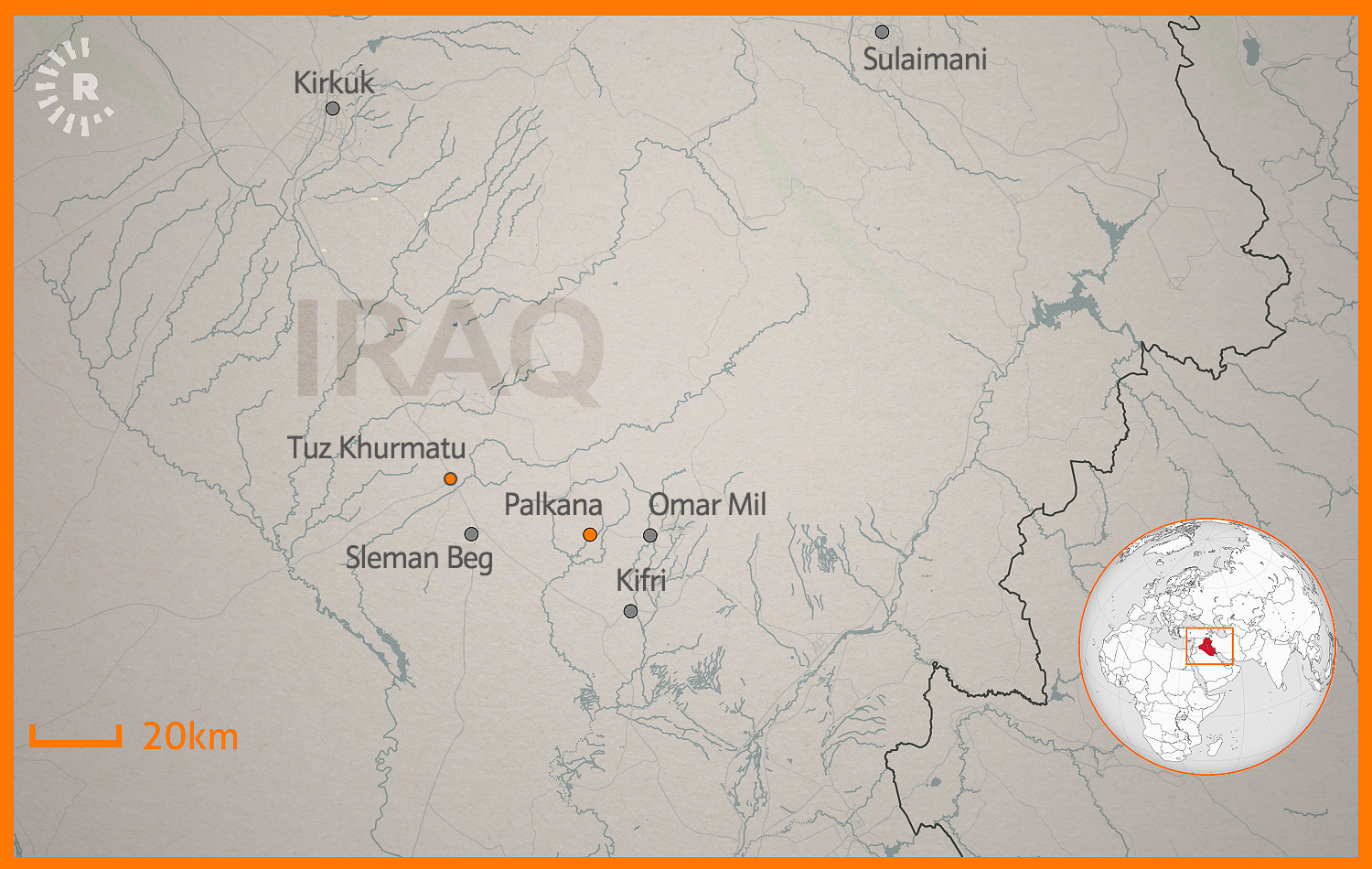
Yazidi families mourn the loss of their loved ones in a mass funeral in Kocho held on December 9, 2021. Photo: AFP
ERBIL, Kurdistan Region - Kurdish Peshmerga forces have discovered a mass grave in the northwest of Kifri containing the bodies of at least ten members of the Iraqi army, a Peshmerga official told Rudaw on Thursday.
The mass grave holding members of the Iraqi army was found in a former Islamic State (ISIS) prison, which the terror group used during their grip on the country to imprison people, Mohammed Syasi, the deputy head of Qaratapa-Hamrin front told Rudaw.
The soldiers “were kidnapped by ISIS militias in 2018,” Syasi said.
The mass grave was found between Palkana and Duraji villages, around 10 kilometers northwest of Kifri. It is one of hundreds of mass graves in the country.
Rudaw English reached out to Iraqi Grave Protection but they were not immediately available for comment.

ISIS seized control of swaths of land in Iraq in 2014. The group committed war crimes, crimes against humanity, and a series of executions as well as enslaving thousands of women who remain unaccounted for.
In June 2014, ISIS attacked the Badush prison in northwest Iraq, committing one of its bloodiest crimes. The group freed Sunnis and loaded the remaining 600, mainly Shiite, inmates onto trucks, before driving them to a ravine and shooting them, according to AFP.
The mass grave was discovered by Iraqi forces in 2017, following the defeat of ISIS. There are more than 200 ISIS mass graves in the country that could contain up to 12,000 bodies, according to the United Nations.
Iraq has been struggling to identify the remains of people from several violent episodes in its recent history.
Last week, the remains of 41 Yazidis who were killed in the terror group’s brutal genocide against the ethno-religious community were laid to rest in Kocho village.
The remains of 104 Yazidis were exhumed from ISIS mass graves in Shingal in November last year and were buried in early February.








Comments
Rudaw moderates all comments submitted on our website. We welcome comments which are relevant to the article and encourage further discussion about the issues that matter to you. We also welcome constructive criticism about Rudaw.
To be approved for publication, however, your comments must meet our community guidelines.
We will not tolerate the following: profanity, threats, personal attacks, vulgarity, abuse (such as sexism, racism, homophobia or xenophobia), or commercial or personal promotion.
Comments that do not meet our guidelines will be rejected. Comments are not edited – they are either approved or rejected.
Post a comment